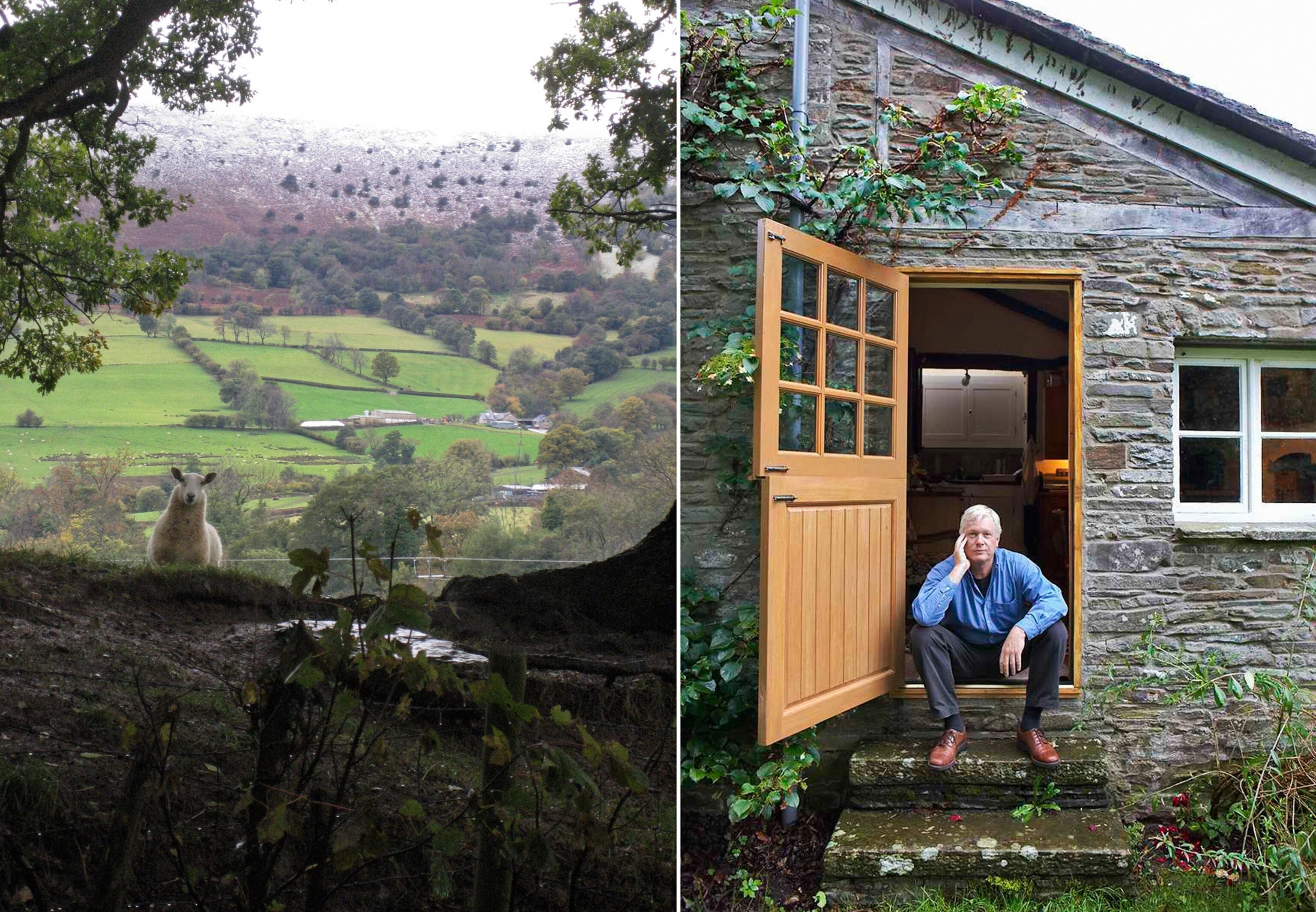
Rainbows, Sheep—and a Pub: The Irresistible Pull of an English Village
Clodock has slipped through the net of history, preserving a way of life that’s vanishing all over the world.
The evening I arrived in the village, I went to the pub, the Cornewall Arms. It's one of those authentic country pubs that haven't been tarted up. Slate floor. Dartboard. Woodstove. Decor dating back to the '50s. Faded black-and-white photos of prize-winning trout, horse brasses, a copper plaque of Winston Churchill giving the V sign. No TV.
Across the floor, in high-backed chairs, two rosy-cheeked sheep farmers dressed in tweed jackets, wool caps, and mud-spattered Wellingtons were talking about the wind while nursing pint mugs of bitter. Like electricity, words are used sparingly round here, and their conversation was punctuated by long, Pinteresque pauses.
"She's worse up top the valley..." The speaker took a sip of his beer. Through the windows, I could see the tombstones in the churchyard next-door, leaning at all angles like lopsided teeth. Beyond them, the Black Mountains rolled across the horizon.
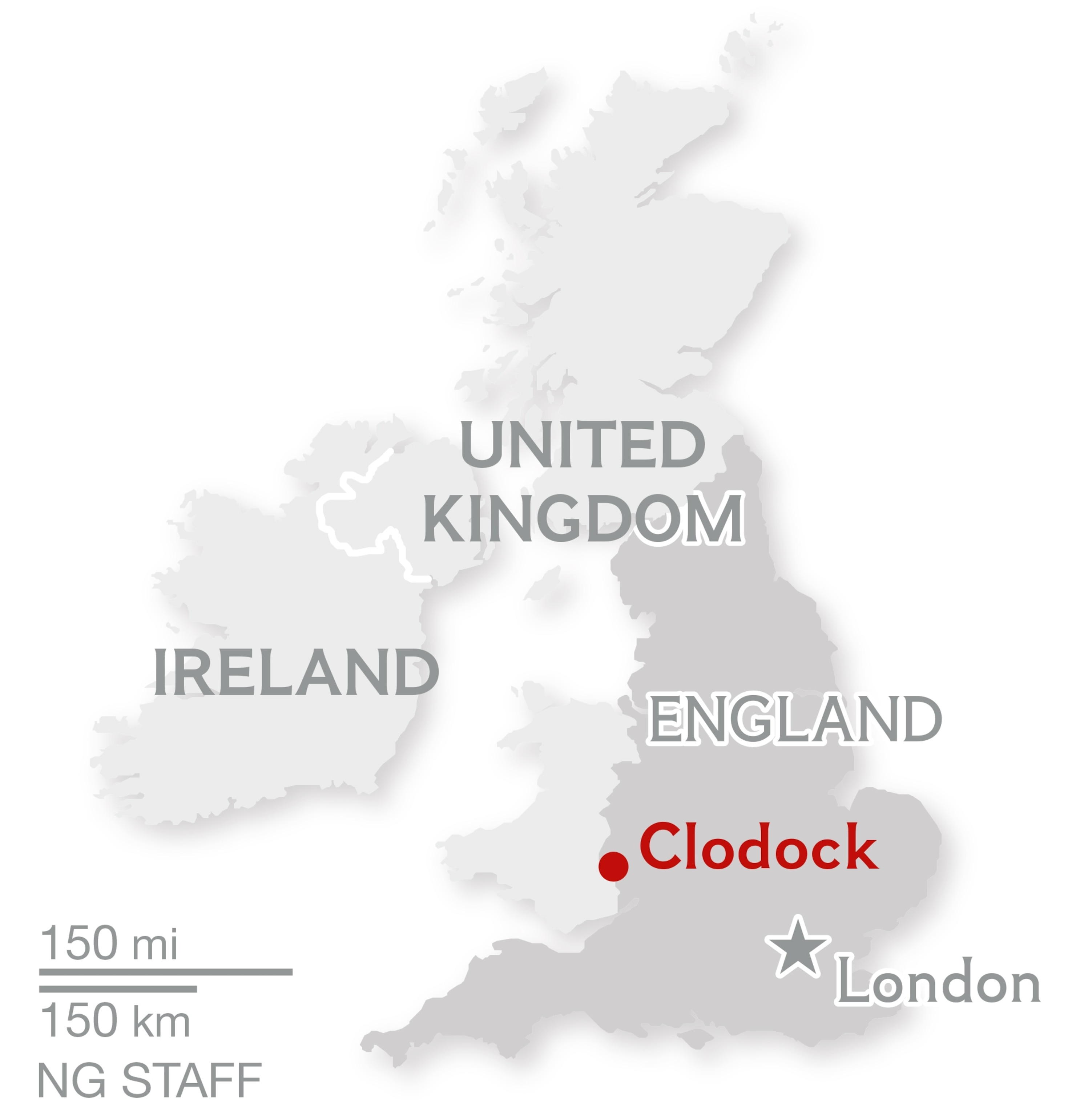
"Remember the storm of '79?"
The other farmer raised his glass to his lips. "Took the roof right off Jim Pritchard's barn..."
A tractor chugged by in the lane outside. A barn owl hooted in the graveyard.
"Allen Richards lost five ewes that night..."
On they went, round and round, parsing the wind, as the flames flickered in the stove and the owl hooted in the yew tree.
I was in heaven.
I'd come to Clodock by chance. An old college friend I'd lost touch with read something I wrote in one of the British newspapers. This was before LinkedIn and Facebook, so he found me the old-fashioned way, by sending a letter to the paper asking them to forward it. I was living in the United States at the time, on the eastern end of Long Island. My marriage had fallen apart, my parents were dying, I was homesick for England.
The next time I went back, I took up my friend's invitation to visit. By chance he knew of a vacant cottage by a river that belonged to some expats in Australia. I rented it for the summer and wrote a large part of my first book, The Poet and the Murderer, holed up in the stone-lined study at the back of the cottage.
Clodock gets its name from Clydog, a king of Ewias and a Welsh saint who was martyred here around the year 500. The church, St. Clydog's, which I can see from my window, is a brash new structure dating from the 12th century. Clodock. A word that sounds as though it has mud clinging to it. Ancient. Elemental. Like the mountains we live under, which date from the Devonian era, 400 million years ago, and are some of the oldest on Earth—one reason Sidney Nolan, Australia's greatest modern painter, chose to swap the outback for a house under the Black Mountains of Wales.
I couldn't believe such a place still existed—even in Britain. Nestled in the cleft of a green valley, with no major roads nearby, Clodock seemed to have slipped through the net of history, preserving a way of life that is vanishing all over the world. The locals, mostly sheep farmers, were unusually friendly. This is not always the case in small, rural communities. But because of the village's remoteness, the ratio of "incomers" to natives is low enough for local people not to feel threatened or overwhelmed.
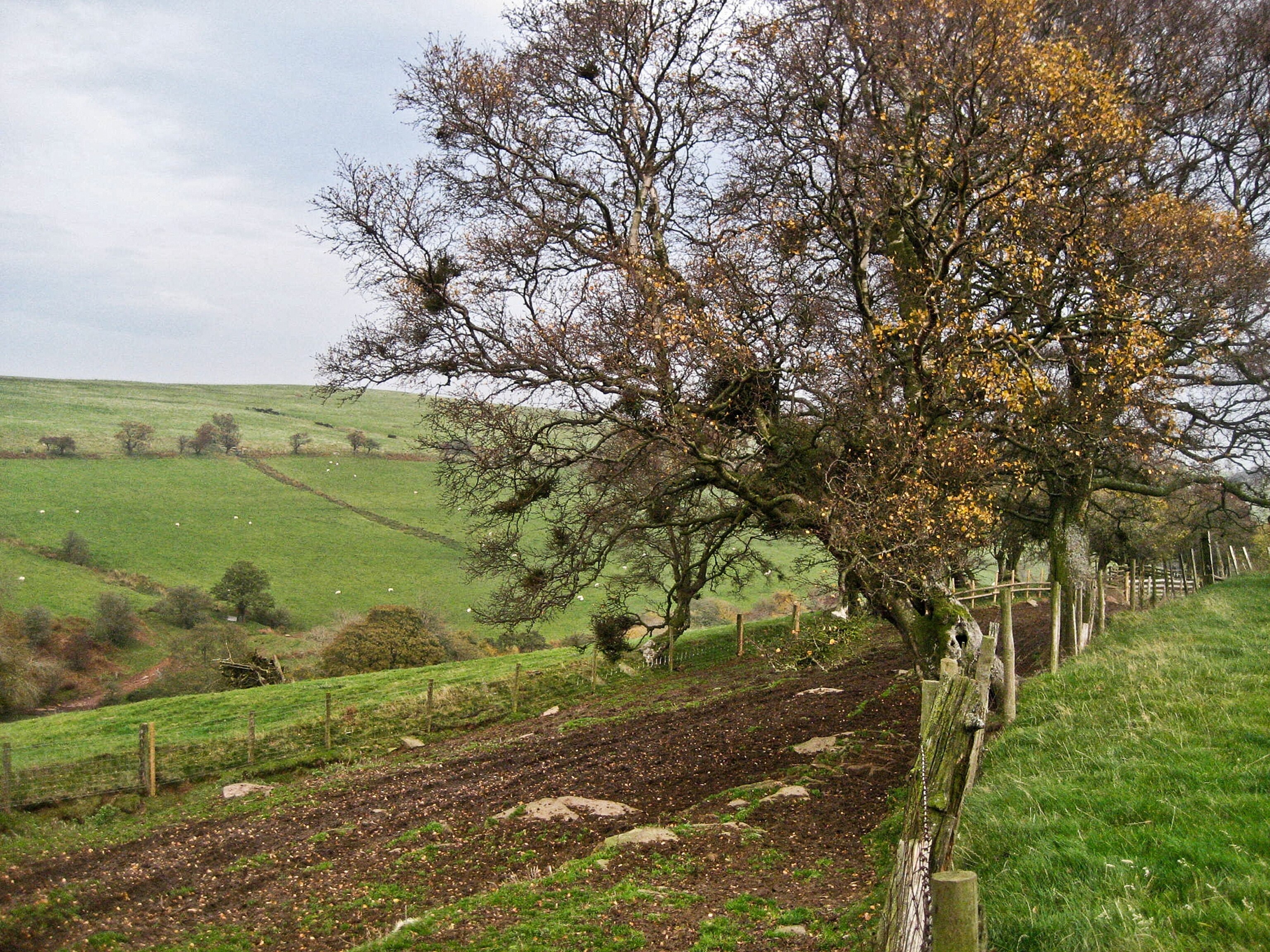
"You're Like the Bouncy Ball"
By the end of that first summer, I had an account at the post office in the next village and was on first-name terms with my neighbors. I came back the next year. And kept coming back. "You're like the bouncy ball," the postmistress said to me one day. "You should come and live here."
So I did. Much to the bewilderment of my son. The first time he visited me from New York, he looked around forlornly and said, Why do you want to live here, Dad?
Why, indeed? You can't find Clodock on Google Street View. Even "village" is too grand a word for this cluster of ancient stone houses on either side of a tea-colored river on the English-Welsh border in the county of Herefordshire. You can't get a haircut or an Armani suit in Clodock. Clodock doesn't have a movie theater or a restaurant. You can't buy a car or see a play. Clodock doesn't have a bank or even a school. There are no shopping malls or gas stations. Clodock doesn't have a corner store, a supermarket, or a liquor store. When a London dealer opened an art gallery called the Monnow Valley Arts Centre, locals took delight in spray-painting the letter F in front of the word Arts.
But we have things you can't find in cities. Silence. Space. The beauty of nature. Light. Real darkness (this part of England has one of the lowest light pollution readings in the country). Weather that's constantly changing, and more rainbows than I've seen anywhere else in the world.
And in Hay-on-Wye, ten miles away over the hills, we now have the world's biggest literary festival, the Hay Festival, which takes place each year at the end of May. A few years ago, Bill Clinton and entourage clogged the narrow lanes getting here. Al Gore, Jane Fonda, John Irving, Julian Barnes, Salman Rushdie, and many others have read or performed at Hay.
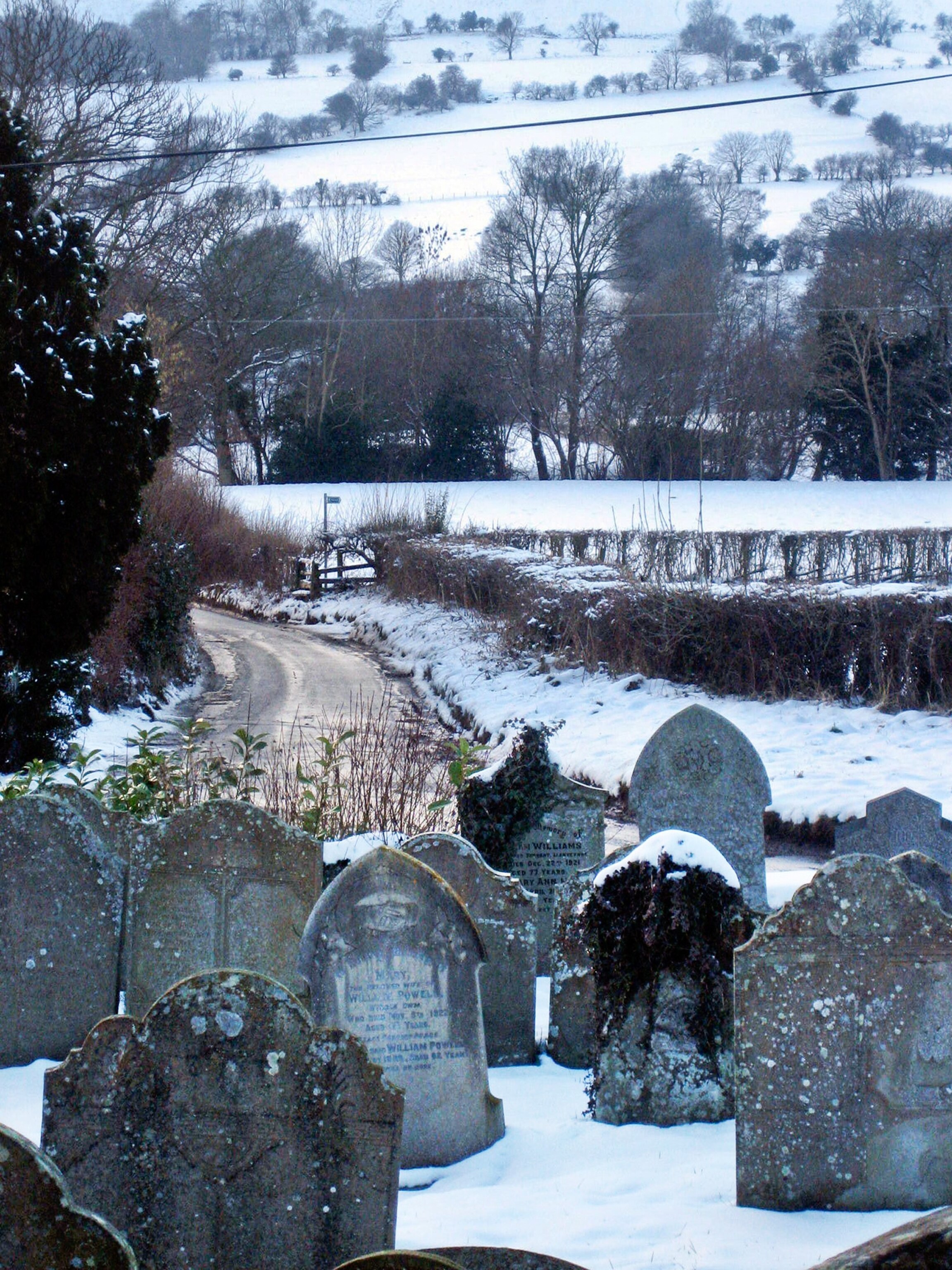
King Richard
It all began when Richard Booth, the owner of the local castle and the self-styled King of Hay, decided to open a secondhand bookstore in the crumbling remains of his ancestral pile. He imported so many books—many of them from the U.S.—that other like-minded individuals began to scavenge his throwaways at the town dump and open their own bookshops.
Today Hay-on-Wye has the most bookshops per person in the world: 40 for a population of 1,400, with roughly three million books in stock. The King of Hay recently sold his castle to a wealthy American woman. But when he was still in residence, he would hold an "audience" each spring in the town square. Dressed in a long red velvet cloak cut from a curtain, and holding an orb (a copper ballcock from a toilet) and scepter (a brass curtain rod), he addressed his "subjects" on such topics as the king's indigestion and home rule for Hay. He issued passports, and animal lovers were able to buy knighthoods for their pets. At one such audience, I watched a border collie being endowed with the title Dame Pip of Hay.
The book town the King of Hay created went on to become the model for others all over the world, including one on a remote island in the Indian Ocean and one in Nebraska. It also laid the seedbed for the Hay Festival, established by Peter Florence, the charismatic son of a London theater impresario, which is now a global operation, with festivals in Spain, Colombia, and elsewhere.
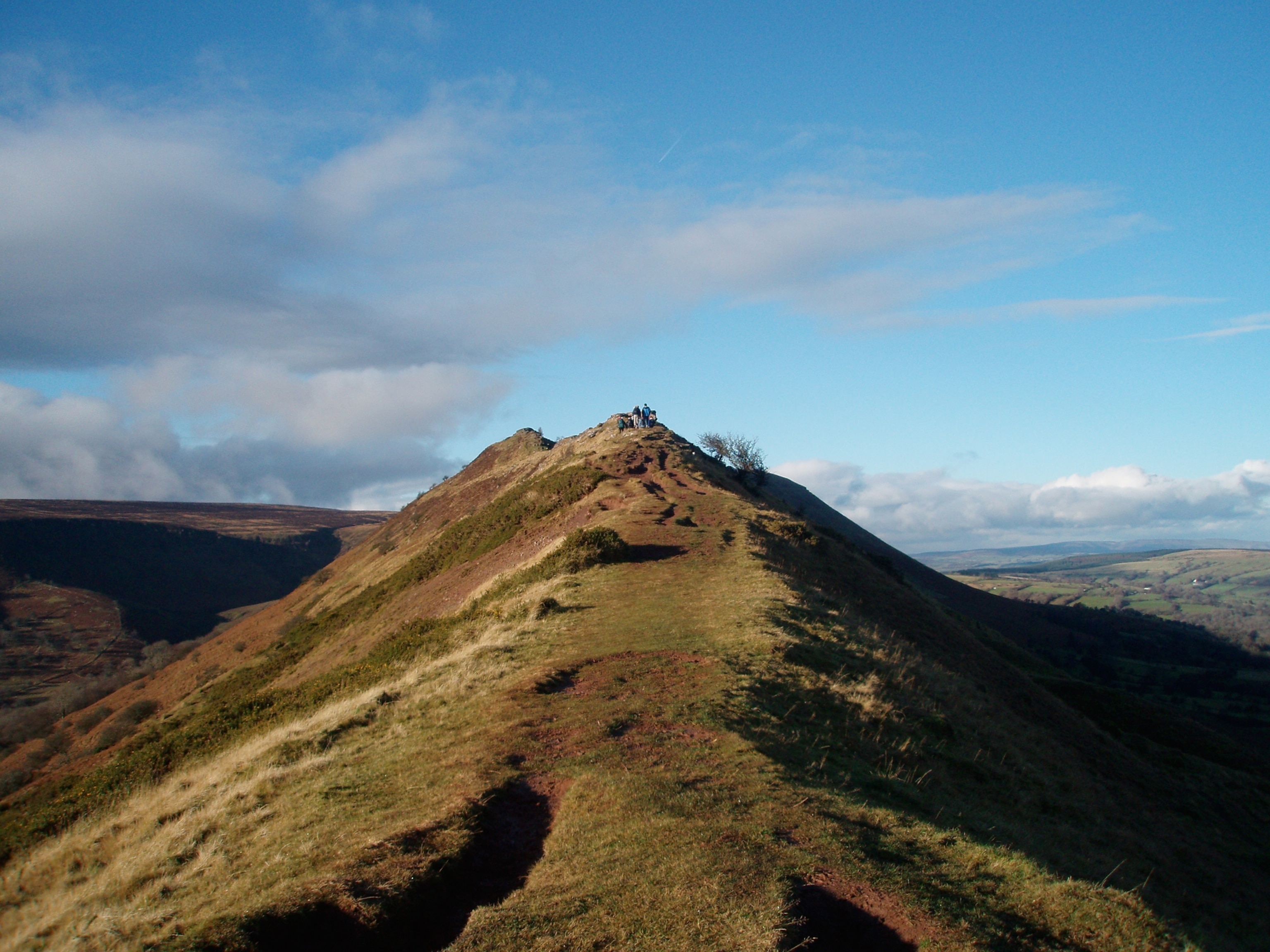
"Don't You Forget It"
The Cornewall Arms is the center of our world. There's Scrabble and darts and cribbage and fish and chips once a week. At Christmas, funerals, or weddings, it's packed to the rafters. In the summer there's a well-attended fete in the beer garden, with country games like duck races (plastic ducks launched on the river) and skittles, and fancy dress. For a writer, it's a mother lode of vernacular: hollow as a churn (empty-headed); that'll fetch the bacon out of you (slim you down); and not the sharpest knife in the drawer (dumb).
Joanne, the publican, who died a few years after I arrived, was a legend in the valley. Seated by the fire in a battered armchair, knitting or reading the newspaper, she'd fix you with a gimlet stare if she didn't know you, scowl, and then go back to what she was doing. If you waited long enough, she would haul herself out of her chair, harrumph across the room to her kitchen, which doubled as the bar, fix you with the same gimlet stare, then, rather reluctantly, pull you a pint. When a couple from London asked her for ice in their drinks, her reply was, "Come back in February." When a group of hikers bounced in one summer and extolled the beauty of Wales, she gave them her familiar look and said, "Clodock is not in Wales. It's in Herefordshire. And that's in England. And don't you forget it."
Joanne's funeral drew people from all over the county, the mourners packing the carved pews and spilling out into the graveyard. Farmers with faces out of a Hardy novel and wives more used to mucking out barns than browsing boutiques dressed in their Sunday best; children with apple cheeks wearing hand-me-down suits too big for them. Afterwards, we all retired to the pub for tea and beer and sandwiches, the slate-floored bar where Joanne had presided for nearly half a century ram-packed with the living—laughing, eating, and drinking, as the drizzle settled on the freshly turned earth of her grave. Not long after, her daughter, Isabel, gave up her teaching job in London to return home and continue the family tradition.
One of the things that holds me here is the river that runs past my door. It's called the Monnow and gave its name to the nearby town of Monmouth, birthplace of Henry V and Charles Rolls, of Rolls-Royce fame. In summer the river is no more than a brook. But after a cloudburst, when countless streams pour down the hills, it becomes a mango-colored torrent that sweeps tree trunks and branches downstream, occasionally bursting over the bank in front of my cottage and almost lapping over the back step.
The river is the first thing I hear in the morning, and the last thing at night. At breakfast, I can see it sliding past the kitchen windows, its reflection dancing on the ceiling. As I move about the house, I glimpse it through the slit windows cut into the walls of the living room, like a piece of kinetic stained glass.
Water is life. Sheep come to the riverbank to drink. There are herons and wagtails, kingfishers, dippers, ducks, and dragonflies. At night, as I lie in bed, I can hear the river rushing past the house, carrying my dreams away, the murmur of the water broken by the high-pitched whistle of otters.
Using #mytown, you can contribute to the My Town series by submitting photos to Your Shot, where you can share photos, take part in assignments, lend your voice to stories, and connect with fellow photographers from around the globe.
Although Simon Worrall has lived in or visited more than 70 countries, he loves nothing more than marking the turn of the seasons in Clodock. His book, River of Desire: A Journey of the Heart Through Patagonia, has been called "Eat, Pray, Love—for men." His account of true love set in World War II, The Very White of Love, will be published in 2015.